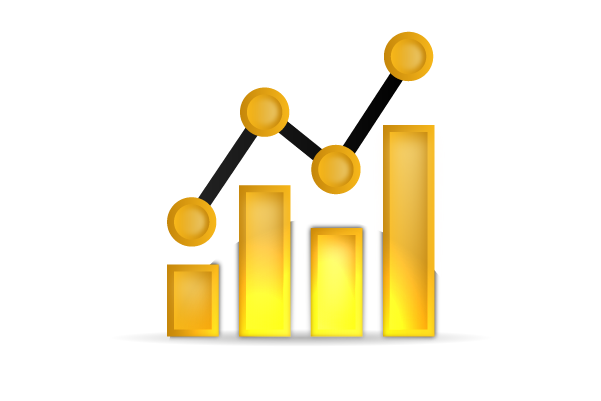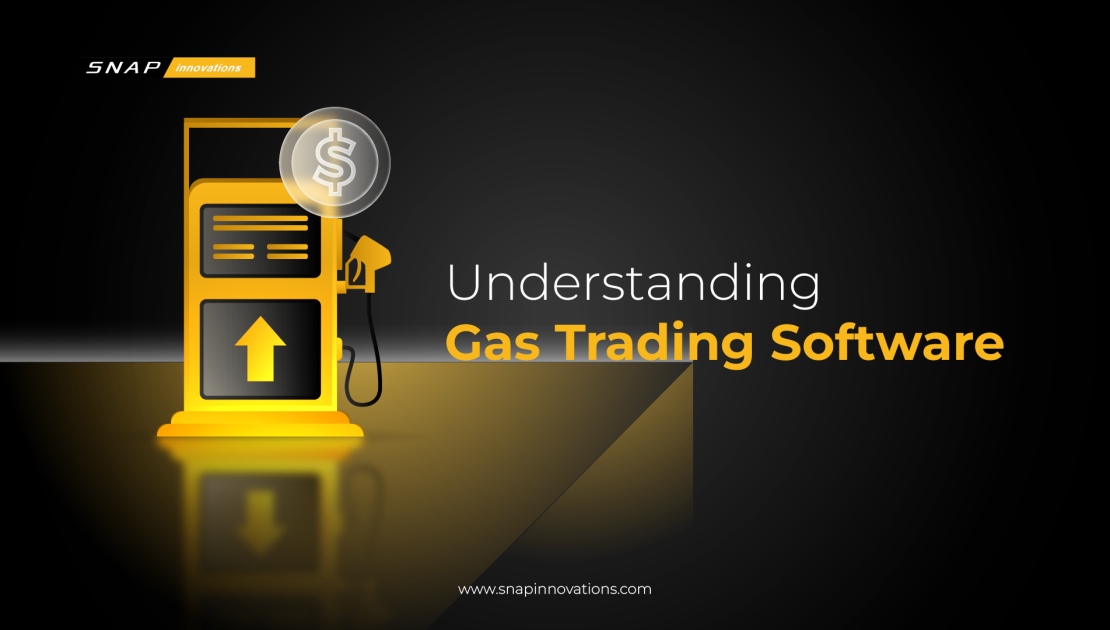Gas trading involves buying and selling natural gas to meet various needs, from residential heating to industrial energy supply. This market is crucial for balancing supply and demand across different regions and seasons. Traders use various strategies and tools to predict price movements and manage risks associated with gas trading. As the global economy continues to evolve, the importance of efficient gas trading mechanisms becomes increasingly significant, influencing everything from local energy prices to international relations.
The intricacies of gas trading require sophisticated analysis and rapid decision-making. To support these needs, traders rely on advanced software that can handle complex data sets and provide real-time insights. This software enhances traders’ ability to make informed decisions quickly, optimizing strategies and improving outcomes in this volatile market. Understanding how this software functions and its benefits will help demystify the process of gas trading for the general public.
What is Gas Trading Software?
Gas trading software is a specialized tool designed to assist traders and companies in navigating the complex world of natural gas markets. It facilitates the analysis, buying, and selling of gas by providing robust analytical tools, real-time market data, and predictive modeling capabilities. This type of software integrates various functionalities to streamline operations, enhance accuracy in predictions, and support strategic decision-making.
Read More: 10 Best Stock Algorithms Software in 2024
The core of gas trading software lies in its ability to process vast amounts of data from multiple sources, including market trends, weather forecasts, and geopolitical events, which can affect gas prices and availability. By automating many of the routine tasks, such software allows traders to focus on crafting strategies that maximize profits and minimize risks. Additionally, these platforms often come equipped with risk management tools, helping traders understand potential scenarios and their impacts on trading portfolios.
Key Features of Effective Gas Trading Software
 Effective gas trading software is characterized by several key features that are essential for successful market participation. These features not only enhance the efficiency of trading operations but also provide critical support in decision-making processes. Here are some of the most important features to look for:
Effective gas trading software is characterized by several key features that are essential for successful market participation. These features not only enhance the efficiency of trading operations but also provide critical support in decision-making processes. Here are some of the most important features to look for:
1. Real-Time Market Data Access
Immediate access to updated market data is crucial for gas traders. Effective software provides real-time information on prices, volume, and market movements, allowing traders to react swiftly to market changes. This feature ensures that all trading decisions are based on the most current information, which is vital in a market as volatile as natural gas. The ability to quickly adapt to market conditions can significantly affect a trader’s profitability and ability to mitigate risks.
In addition to providing current data, real-time access allows traders to monitor their positions continuously and make adjustments as market conditions change throughout the day. This dynamic access to data helps traders maintain a competitive edge by staying ahead of market trends and potential price shifts that could affect their trading strategies.
2. Advanced Analytical Tools
High-quality trading software includes powerful analytical tools that help traders perform complex analysis, such as predictive modeling and scenario analysis. These tools can forecast market trends and simulate various trading scenarios to identify the most promising opportunities. By leveraging historical data and current market inputs, these tools enable traders to develop sophisticated trading strategies based on robust quantitative models.
Furthermore, these analytical tools often incorporate machine learning algorithms that improve their accuracy and effectiveness over time as they process more data. This capability allows traders to refine their approaches continuously as the software becomes better at predicting market behaviors and identifying profitable trading opportunities.
3. Risk Management Capabilities
Risk management is a cornerstone of trading software, enabling traders to assess and mitigate potential losses. Features like stop-loss orders, value at risk (VaR) calculations, and stress testing are integral to managing the inherent risks of gas trading. These tools help traders understand the potential impacts of different market scenarios on their portfolios and make informed decisions to protect their investments.
Moreover, effective risk management tools also provide detailed reports and alerts that can warn traders of potential risk exposures. By having a proactive approach to risk management, traders can not only prevent significant losses but also optimize their trading strategies to balance risk and reward more effectively.
4. Integration with Other Systems
To optimize workflow, good trading software integrates seamlessly with other financial and operational systems within a company. This integration ensures that data flows smoothly between systems, improving accuracy and efficiency. By automating data exchange between systems, companies can reduce manual data entry errors and free up resources for more strategic tasks.
This integration is particularly important for ensuring compliance with regulatory requirements and for facilitating comprehensive financial reporting. With integrated systems, traders can quickly consolidate and analyze information across different departments, enhancing decision-making and strategic planning.
5. User-Friendly Interface
Despite the complexity of its functions, top-tier gas trading software maintains a user-friendly interface that facilitates ease of use. A well-designed interface helps traders navigate the software efficiently, reducing the likelihood of errors and increasing productivity. Clear menus, intuitive controls, and customizable dashboards are important elements that enhance user experience and allow traders to access necessary tools quickly.
The importance of a user-friendly interface cannot be overstated, as it directly impacts the speed and accuracy with which traders can execute their transactions. In fast-paced trading environments, the ability to quickly interpret data and respond to market changes is essential for success.
6. Customization and Scalability
Each trading operation has unique needs, so the ability to customize software features is vital. Furthermore, as trading operations grow, the software must be able to scale accordingly to handle increased demand. Customization allows firms to tailor the software’s features to better fit their specific trading strategies and operational requirements.
Scalability ensures that as a company expands, the software can handle an increased volume of trades without compromising performance. This adaptability is crucial for firms planning to grow or diversify their trading activities over time, ensuring that their investment in software continues to provide value long-term.
Benefits of Using Gas Trading Software
 Gas trading software offers numerous benefits that enhance the efficiency, accuracy, and profitability of trading operations. Here are some of the key advantages:
Gas trading software offers numerous benefits that enhance the efficiency, accuracy, and profitability of trading operations. Here are some of the key advantages:
1. Enhanced Decision-Making
Gas trading software equips traders with advanced data analysis tools that provide deep insights into market trends and potential trading opportunities. These insights help traders make more informed decisions, reducing the guesswork associated with manual analyses. The ability to quickly analyze large datasets and access real-time market information means decisions are both faster and more data-driven.
Moreover, the predictive capabilities of modern trading software allow traders to anticipate market movements before they happen. This proactive approach to trading can significantly increase the chances of executing successful trades, leading to higher profitability.
2. Increased Efficiency and Productivity
By automating routine tasks such as data collection, analysis, and report generation, gas trading software significantly reduces the time and effort required to manage trading operations. This automation frees up traders to focus on strategy development and market analysis, rather than getting bogged down by administrative tasks.
The software’s user-friendly interface and customizable features also streamline the trading process, making it easier and quicker to navigate complex trading environments. This increased efficiency often leads to more trades being executed in a shorter amount of time, maximizing trading opportunities.
3. Improved Risk Management
One of the most critical aspects of trading is risk management, and gas trading software provides robust tools to help manage and mitigate risks. Features like real-time alerts, stop-loss settings, and scenario analysis tools allow traders to identify potential risks early and take preventative action.
These tools also help traders maintain compliance with regulatory standards by providing a framework for reporting and monitoring risk exposures. Effective risk management not only protects against losses but also enhances the overall stability of trading operations.
4. Scalability
As trading operations grow, the demands on trading software also increase. Gas trading software designed with scalability in mind can handle an increasing volume of trades and data without degradation in performance. This scalability ensures that trading operations can expand without needing to frequently upgrade or replace their software infrastructure.
This benefit is particularly important for growing companies looking to enter new markets or increase their trading volume as their business develops. Scalability means that the initial software investment continues to provide value long into the future, supporting the company’s growth and adaptation in a changing market.
How to Choose the Right Gas Trading Software
 Choosing the right gas trading software is critical for ensuring that the tools at your disposal effectively meet the specific needs of your trading operations. This decision should be based on several key factors that contribute to the overall performance and usability of the software. Here are some crucial considerations to keep in mind:
Choosing the right gas trading software is critical for ensuring that the tools at your disposal effectively meet the specific needs of your trading operations. This decision should be based on several key factors that contribute to the overall performance and usability of the software. Here are some crucial considerations to keep in mind:
- Compatibility with Existing Systems
It’s important to select software that integrates seamlessly with the existing infrastructure and systems within your organization. Compatibility reduces the likelihood of technical issues and enhances the efficiency of data integration across platforms, ensuring a smoother workflow and more coherent data management.
- Customization Capabilities
Since every trading operation has unique requirements, the ability to customize the software to fit specific needs is invaluable. Look for software that offers extensive customization options, allowing you to tailor features, interfaces, and functionalities to match your trading strategies and operational preferences.
- Scalability
Ensure that the software you choose can scale with your business as it grows. This means it should be able to handle increasing amounts of transactions and data without a drop in performance. Software that can grow with your company will provide better long-term value.
- Support and Training
Good software vendors offer comprehensive support and training programs to help your team effectively utilize their products. Adequate training ensures that your staff can maximize the software’s capabilities, while ongoing support is crucial for resolving any issues that arise quickly.
- Security Features
Security is paramount, especially when dealing with sensitive financial data involved in gas trading. Ensure the software provides robust security features to protect against cyber threats, data breaches, and unauthorized access.
- Cost Efficiency
Finally, consider the cost of the software in relation to the features and benefits it offers. While it’s important not to compromise on essential features for the sake of cost, ensure that you’re getting a good return on investment by choosing a software that offers the best balance of cost and functionality.
Future Trends in Gas Trading Technology
As the energy sector continues to evolve, the technology supporting gas trading is advancing rapidly, necessitating that traders and companies remain vigilant and adaptable to maintain competitiveness in a dynamic market.
Notably, the integration of artificial intelligence (AI) and machine learning (ML) is becoming essential, enhancing software capabilities to process large datasets and improving the accuracy of predictive analyses. These technologies enable the identification of patterns and trading insights far beyond human capabilities, facilitating more strategic and informed trading decisions.
Additionally, blockchain technology is emerging as a revolutionary force, offering a decentralized and secure method for recording and executing trades, which increases transparency and reduces fraud risks. The shift towards sustainability is also prompting a closer integration with renewable energy markets, requiring trading platforms to manage both traditional and renewable energy trades within increasingly complex multi-commodity trading environments.
Read More: A Comprehensive Guide to the Digital Payment Revolution
Moreover, as markets grow more volatile, advanced risk management tools that utilize real-time data and predictive analytics are becoming crucial in helping traders mitigate potential risks associated with market and geopolitical factors.
Lastly, with tightening regulations in the energy sector, future trading software will need to enhance its compliance features to include comprehensive reporting tools, detailed audit trails, and regulatory management functionalities tailored to diverse regional and global standards. These developments are shaping a future where gas trading technology not only becomes more efficient and secure but also more integral to navigating the evolving landscapes of global energy markets.
Conclusion
In conclusion, gas trading software stands as a pivotal tool in the complex world of natural gas trading, offering robust solutions that enhance decision-making, increase efficiency, and bolster risk management.
As the market evolves, the role of such software only grows in importance, ensuring that traders can adapt to changing market dynamics and regulatory environments. Future trends in technology, including the integration of AI, blockchain, and enhanced regulatory compliance features, promise to further refine and enhance these platforms, making them indispensable in the quest for competitive advantage and operational excellence.
By embracing these advancements, traders can navigate the challenges of the gas trading market with greater confidence and success, contributing to a more stable and efficient energy landscape for all.

